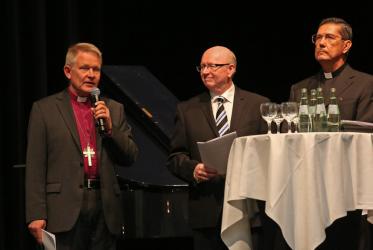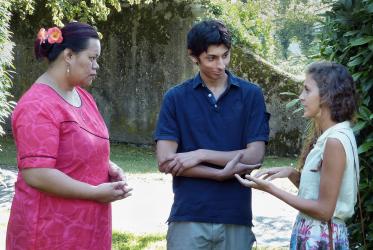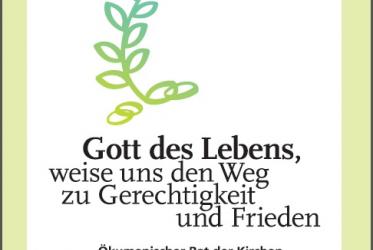Displaying 41 - 52 of 52
WCC urges responsibility for and support to the refugees in Europe
04 September 2015
Panel revisits Dietrich Bonhoeffer’s ecumenical legacy
05 March 2015
The Berlin Wall: looking back, looking forward
07 November 2014
WCC general secretary speaks on reality of wars at Sant’Egidio meeting
12 September 2014
“We have to build new bridges”
28 August 2014
Youth build multi-faith community in Bossey
28 August 2013







